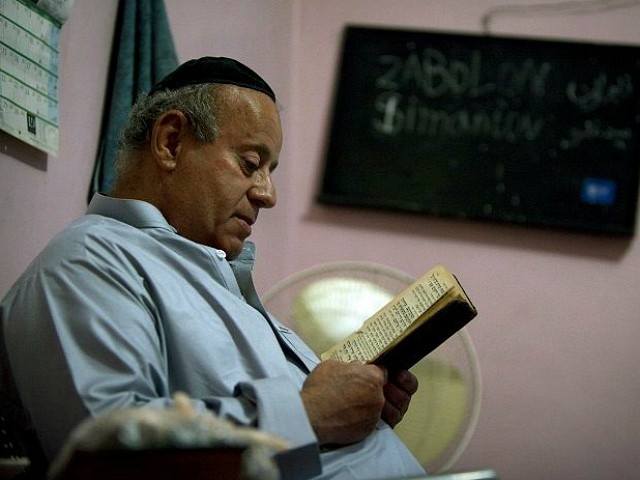The last remaining Jewish citizen in Afghanistan finds himself among a small group of non-Muslim religious minorities who have become a target of a deadly persecution campaign at the hands of the Islamic State (ISIS/ISIL) and the Taliban, the U.S. Department of State (DOS) mentions in a report released on Tuesday.
“There are small numbers of practitioners of other religions, including one Jew … Kabul’s lone synagogue remained inactive, and a nearby Jewish cemetery was utilized as an unofficial dump,” DOS notes in its International Religious Freedom Report for 2017, adding:
Sikhs, Hindus, Christians, and other non-Muslim minority groups reported continued harassment from some Muslims, although Hindus and Sikhs stated they were able to practice their respective religions in public. Christian groups reported public opinion remained hostile towards converts and to Christian proselytization. Christians and Ahmadi Muslims stated they continued to worship privately to avoid societal discrimination and persecution.
Besides the nation’s Shiite community, which makes up nearly a quarter of the population, the “other religious groups” in Afghanistan, “mainly Hindus, Sikhs, Bahais, and Christians, constitute less than 0.3 percent of the population.”
For over a decade, news reports have identified Zebulon Simentov as the last remaining member of the once thriving ancient Jewish community — estimated to reach 40,000 at its peak in the mid-19th century.
The creation of the Israeli state in 1948 prompted most of Afghanistan’s remaining Jewish community to leave. By some accounts, Jewish roots in Afghanistan may date back 2,700 years.
While highlighting a “continued decline in societal discrimination against the Shia [Shiite] minority by the Sunni majority,” State notes that Sunni terrorist groups the Taliban and ISIS are increasingly targeting and killing Shiites and other religious minority members.
“The Islamic State in Khorasan Province (ISKP), an affiliate of ISIS and a U.S.-designated terrorist organization, and the Taliban continued to target and kill members of minority religious communities because of their beliefs or their links to the government,” the DOS report notes.
Of the 37 jihadi attacks against places of worship, religious leaders, and worshippers in 2017, 13 reportedly targeted Shiites. Citing the United Nations, State points out that the Taliban and ISIS killed 202 faith adherents and injured 297 others last year, marking an increase of more than 30 percent from 2016.
The Sunni Taliban also “continued to assassinate or issue death threats against Sunni clerics for preaching messages contrary to its interpretation of Islam; Taliban gunmen killed imams and other religious officials throughout the country,” State points out.
Non-Muslim religious minorities are also facing a lack of fundamental citizenship rights and judicial protection by the government in Afghanistan.
“Minority religious groups reported the courts still did not apply the protections provided to those groups by the law and the courts denied non-Muslims the access to the courts or other legal redress as Muslims, even when the non-Muslims were legally entitled to those same rights,” DOS notes.
Sharia, a strict set of Islamic laws that govern a Muslim’s life, heavily influences Afghanistan’s court system.
The United States has spent more than $125 billion on nation-building efforts in Afghanistan, including hundreds of millions to improve the country’s sharia-based judicial system, a U.S. watchdog agency found in 2015.
U.S.-funded Afghanistan considers conversion from Islam and blasphemy to be a capital offense, punishable by death.
The country’s Sunni judicial system suggests “beheading is appropriate for male apostates, while life imprisonment is appropriate for female apostates unless they repent,” State notes.
“Conversion from Islam to another religion is considered apostasy, which is punishable by death, imprisonment, or confiscation of property. … accused blasphemers, like apostates, have three days to recant or face death, although there is no clear process for recanting under sharia,” DOS explains.
DOS concedes, “there were no reported prosecutions for apostasy or blasphemy” last year.
